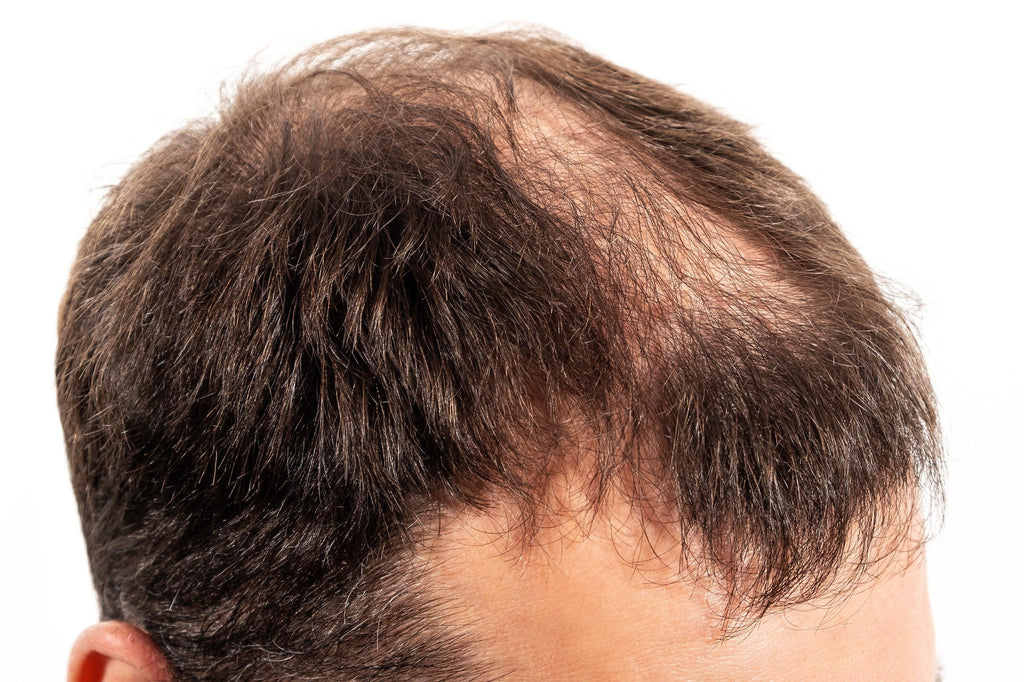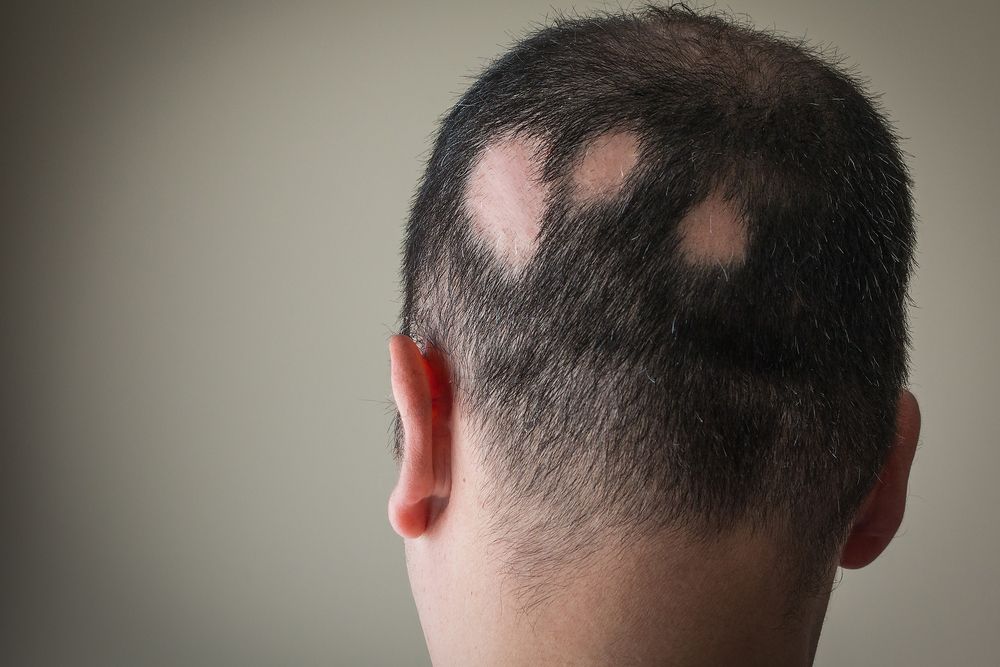The thyroid is a gland located in the front of the neck that produces hormones essential for metabolic function. Without proper functioning, many issues can arise including hair loss.
Understanding thyroid hair loss and its causes, symptoms, and treatment options is key to managing this condition effectively. This article will look at how an imbalance in hormone production affects hair growth and explore potential treatments from lifestyle changes to medications.
Well also cover what steps you should take if you believe your hair loss is related to your thyroid health. With this information, you will be equipped with knowledge on how to manage or even reverse any effects caused by a malfunctioning thyroid gland.
Causes of Thyroid Hair Loss
Thyroid hair loss can have a range of causes, from genetic predisposition to dietary deficiency. Thyroid disease, an autoimmune condition called alopecia areata, and hormonal changes such as during pregnancy or menopause can all lead to thinning hair on the scalp and body.
In some cases, individuals may experience hypothyroidism or hyperthyroidism due to imbalances in the production of thyroid hormones which results in excessive shedding of hair follicles. Nutritional deficiencies resulting from inadequate intake of essential vitamins and minerals can also contribute to thyroid-related hair loss as well as stress levels that interfere with the normal functioning of the endocrine system.
Those suffering from thyroid issues need to consult their doctor for proper diagnosis and treatment options so that they can get on track towards regaining healthy locks once again.
Symptoms of Thyroid Hair Loss

Thyroid hair loss is a common symptom caused by an imbalance in hormones. It typically presents itself as thinning or balding on the top of the head, but can also occur around the sides and back of the scalp.
In some cases, it may even lead to complete hair loss all over the body. Common signs of thyroid hair loss include patches of thinning or balding, increased shedding during shampooing or brushing, slow regrowth after normal shedding has stopped, and changes in texture such as dryness, coarseness, or spikiness.
If you experience any one (or more) of these symptoms, it’s important to speak with your doctor right away to discuss possible causes and treatment options for thyroid-induced hair loss.
Treatment Options for Thyroid Hair Loss

Treating thyroid hair loss can be a challenge as the underlying cause must first be identified and addressed. Treatment will differ depending on the cause but may include medication, dietary changes, lifestyle modifications, or other methods.
Common medications used to treat thyroid hair loss include Levothyroxine, which replaces missing hormones and helps regulate metabolism; Liothyronine which regulates hormone levels in individuals with hypothyroidism; Thyroid Extracts that reduce inflammation of gland tissue and improve functioning; and Cytomel which helps restore normal levels of T3 hormones. Dietary changes such as adding more iodine-rich foods into your diet are beneficial for those suffering from both hyperthyroidism and hypothyroidism.
Additionally, making sure to get enough essential fatty acids through food sources like salmon can help support healthy scalp conditions by providing omega-3s for nourishment. Lifestyle changes such as reducing stress through exercise and relaxation techniques can help balance hormone levels naturally while avoiding triggers that may exacerbate symptoms of thyroid diseases or disorders is important in managing overall health including preventing further hair loss due to an imbalance in thyroids activity.
Finally, alternative treatments like acupuncture have also been found effective at treating some autoimmune conditions related to the dysfunction of the thyroid gland thus helping manage hair thinning caused by its malfunctioning.
Conclusion

Thyroid Hair Loss is a common condition that affects many people, and it can have both physical and psychological impacts on your life. Fortunately, there are numerous treatment options available to help manage this condition.
Knowing the causes, symptoms, and treatments of Thyroid Hair Loss can empower you to make an informed decision about how best to address your needs and get back on track with healthy hair growth as soon as possible. With the right support, understanding Thyroid Hair Loss doesn’t have to be a daunting task; you can take control of your health today!






